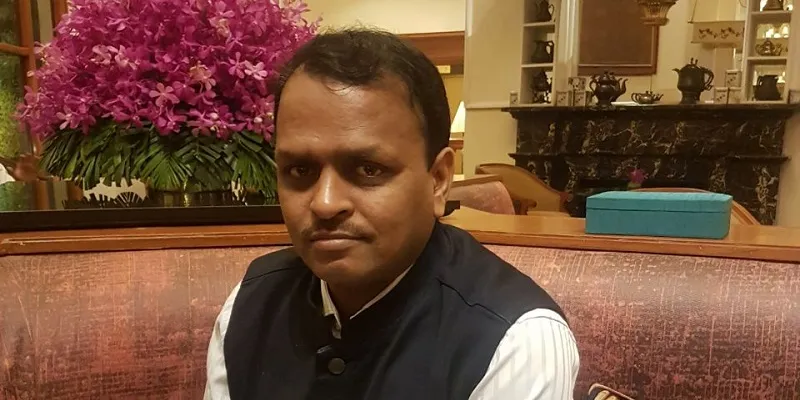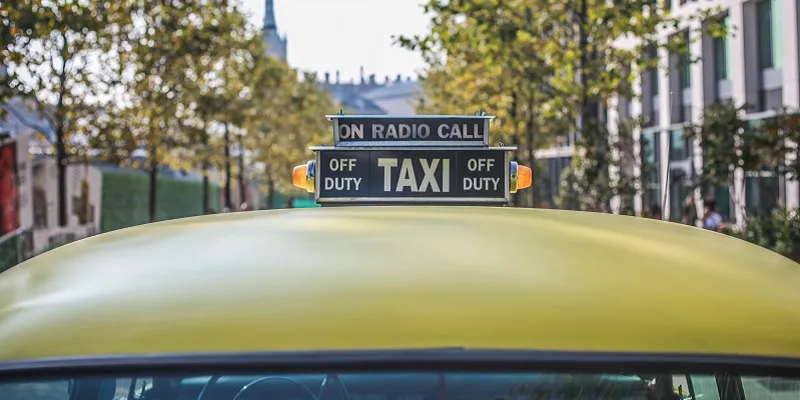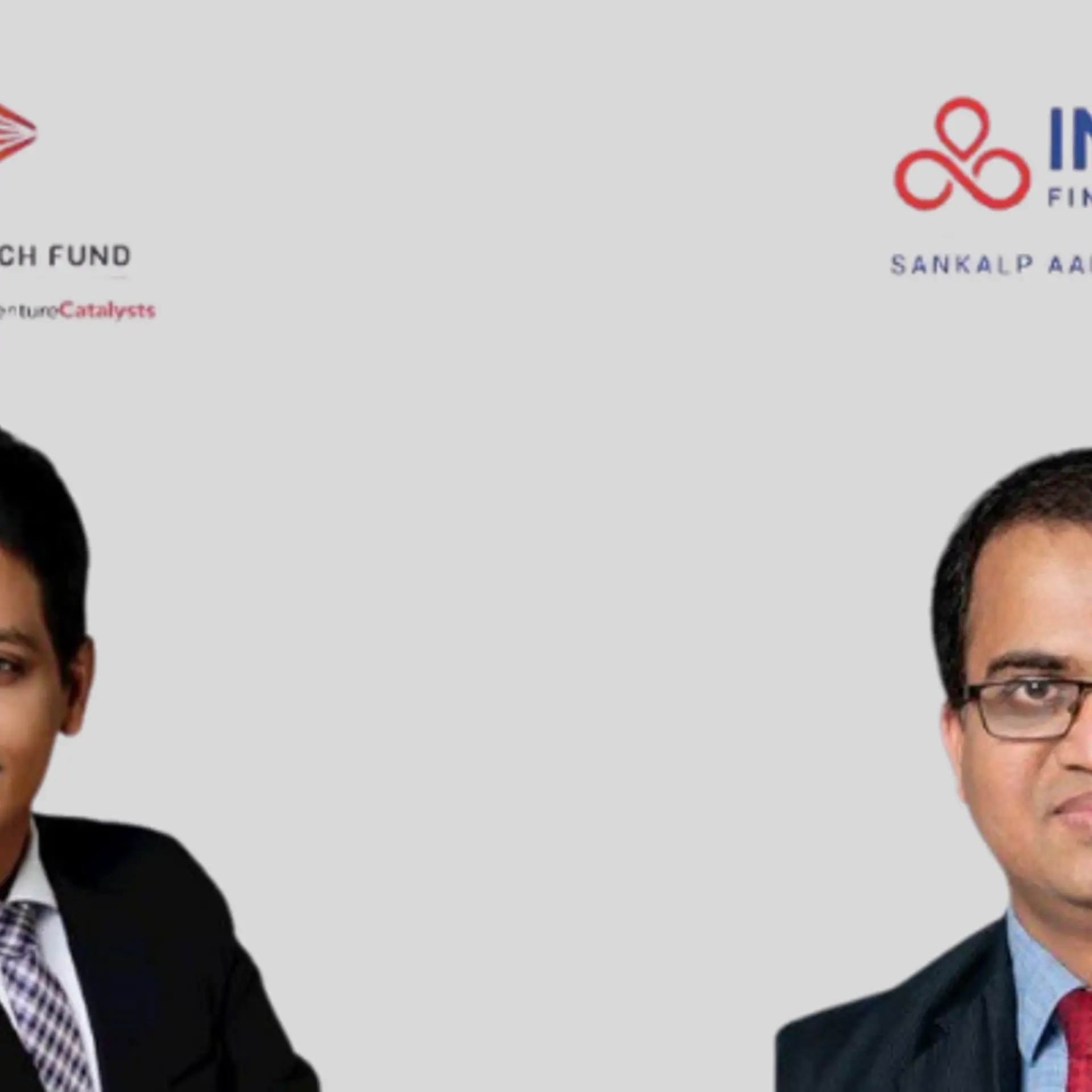Bootstrapped Rastey aims to be the Ola and Uber of corporate and retail travel
Delhi-based Rastey Cabs aims to be the one-stop solution for corporates’ local and outstation requirements.
Saket Kumar, who works at a mutual fund company, was in a soup. He had just missed an important flight as his cab driver didn’t turn up at the last moment. His frustration got him thinking: why wasn’t there a reliable service? That moment was the genesis of Rastey Cabs.
Saket felt the radio taxi business was being challenged by the likes of Ola and Uber, but car rental services, which presented a big opportunity, were yet to be disrupted in the same way, especially for corporate clients.
Rastey Cabs was born as a one-stop solution for all commuting requirements of corporate clients.

What does the platform do?
The platform provides end-to-end solutions for corporate needs like facilitating employees’ mobility or even managing transport during events.
During market research, the team saw gaps in the various services being offered. There witnessed a lack of reliability in terms of quality, safety, transparency and overall experience. Saket knew that was not the way to go.
Housed in the cloud, Rastey has the capabilities to handle scale at all levels. Saket says they have automated almost everything possible, from assigning, monitoring, billing, alerts and notifications at different stages, sharing, tracking and threat management into the system.
“The system has built-in Artificial Intelligence (AI) and consumer behaviour management, which is layered with Machine Learning. This keeps improving every trip we serve. We have easy and friendly dashboards and apps for our corporate desks, vendor partners and internal team operating out of multiple locations. Everything is built in-house, is extremely agile and can adapt to any changes in the market immediately,” Saket says.
Working around the problems
The original idea was to address the problem of retail car rental. The difficulty of identifying an operator when you need one, the difficulty of booking a cab and the problems with tracking one were the core problems Saket wanted to solve.
That is when they decided to build a corporate travel solution model and optimise it. Ola and Uber had just proved that asset-light models are far more flexible than asset-heavy ones like Meru and Mega. The team had decided to engage corporates on the Ola and Uber model.
However, breaking into the market was a task, especially in the initial days. Saket says corporates were “pampered” by local and international vendors, and that they struggled for almost a year with a few local corporate bookings. But passion and faith saw the team through.
Soon the Rastey Cabs team was able to bag Apollo Hospitals as a client.
“We have not looked back since then; we have added more than 150 corporates to our portfolio. We have tried to do justice to each and every duty that has come our way. Ethics, transparency and reliability are the three pillars of our organisation. We value our commitments to our patrons as much we do to our cab partners,” Saket adds.
Adding the driver partners
The team inducted the first few driver-owners, who were trained in all aspects of the overall experience to ensure quality to the commuters. Based on feedback, Rastey Cabs worked on improving the service level with every new trip.
Starting with 1,000 trips for the month, Saket says they are now doing over 10,000 trips a month now. They began in Delhi-NCR, but Rastey Cabs soon started expanding to different locations and worked with corporates who needed to travel to other cities.
“We started adding supply in other cities and in two months, we covered the top 15 cities. We now offer services across all major locations in the country,” Saket says.
Building the team and the cab market
Once Saket had the idea of Rastey Cabs, he roped in a friend from his MBA days – Sandeep Mishra, who had experience in Deutsche Bank and other financial services sectors for over 16 years. The duo then brought in Shabir Momim, a serial entrepreneur and a technologist.
The Rastey Cabs team has now grown to 37 people, and claims to have over 20,000 cabs attached to its platform.
It took over four years for Ola and Uber to break into the market and transform consumer behaviour. But since the beginning of this year, with the drop in driver incentives, several players were looking to break into space.

Hyderabad-based Vihik Cabs claims to have over 7,500 customers and over 1,000 drivers, with as many as 200 drivers in Hyderabad. The team hopes to connect with over 10,000 customers by the end of this year.
Apart from that, in an effort to take on cab aggregator giants Ola and Uber, taxi drivers of Bengaluru launched a similar platform of their own, Namma TYGR. The new platform has the backing of former Karnataka Chief Minister and leader of Janata Dal (secular) HD Kumaraswamy.
There are rumours that Reliance may enter the space, but despite that, the cab aggregator market is tough and requires players to bleed a lot of capital.
Ola, valued at $4.2 billion, is already allegedly looking to raise additional capital from Tencent, and Uber, valued at $68 billion, has consolidated its presence in China and Russia and remains strongly focused on India.
Rastey Cabs, however, is keeping its eyes on corporate travel and commutes. Bootstrapped since its launch in 2013, Saket says Rastey has seen a 100 percent revenue growth. The startup is now looking to expand to more cities in India and eventually to other countries, adding more partner cabs and cab vendors.
“We are keen to maintain satisfaction levels as we keep growing,” Saket says.







